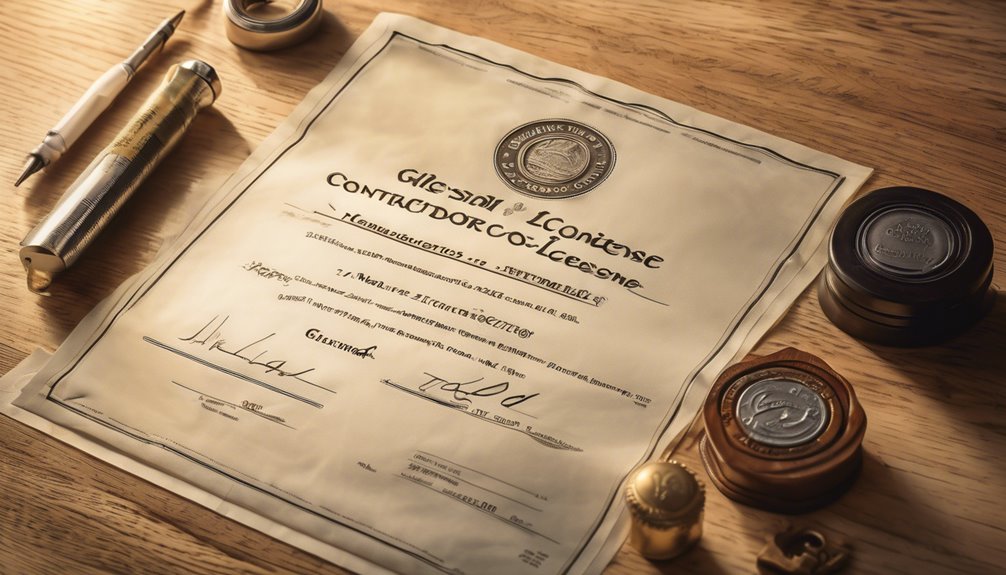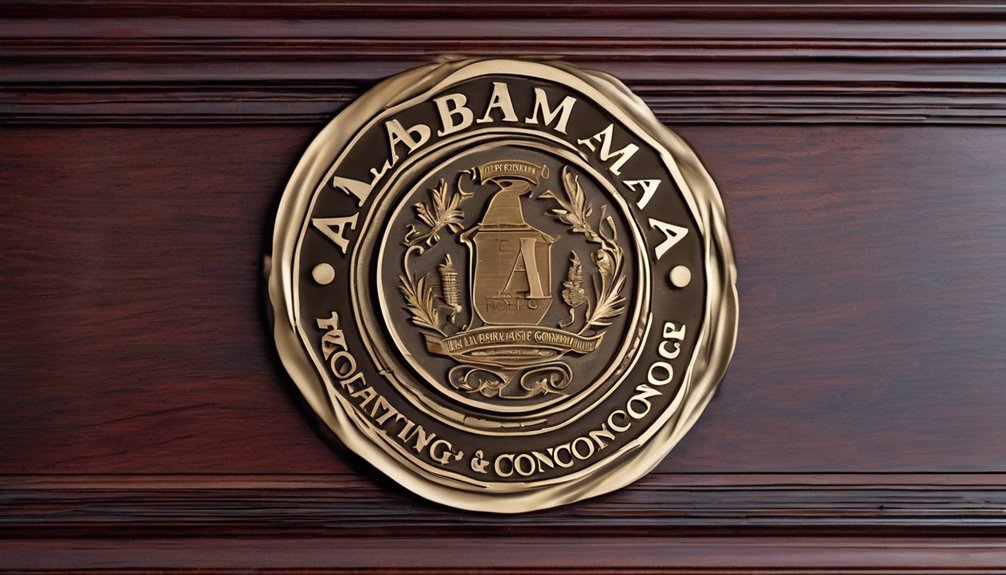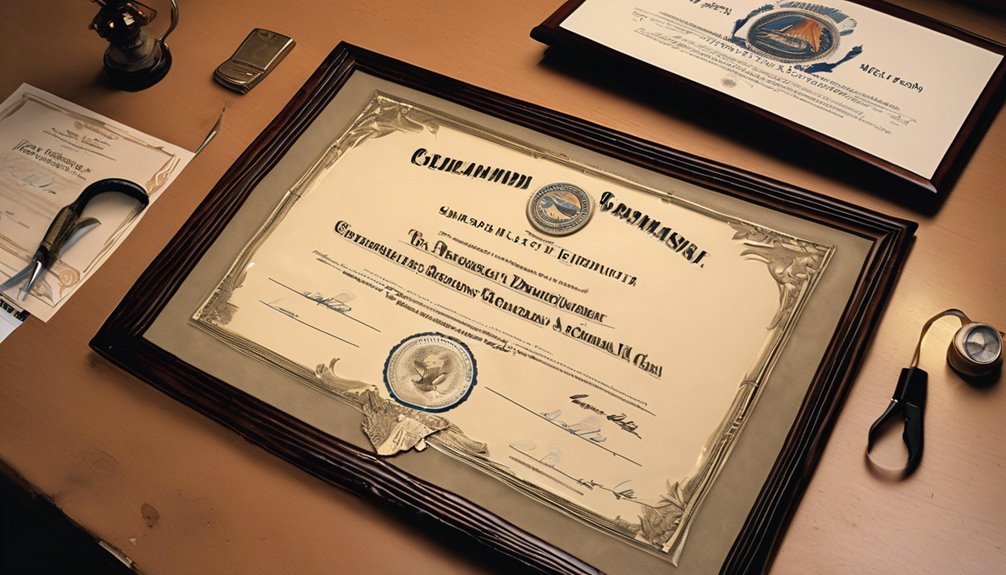Get an Instant Quote on Heating/AC/Refrigeration Contractor License Bond
If you’re a contractor in Alabama’s heating, AC, or refrigeration sector, understanding the State Board’s contractor license bond is essential. This bond not only safeguards your clients but also showcases your commitment to industry standards. But what does it take to secure this bond, and what are the implications of not adhering to its regulations? The answers could significantly impact your business’s reputation and success.
Overview of the Contractor License Bond

When you’re entering the heating and air conditioning industry in Alabama, understanding the contractor license bond is crucial. This bond acts as a financial guarantee that you’ll comply with state regulations and industry standards. It protects your clients by ensuring that if you fail to meet your obligations, they can claim compensation.
In Alabama, the bond amount varies based on your specific license type, so you’ll need to check the requirements for your situation. Obtaining this bond shows potential clients that you’re serious about your business and committed to ethical practices.
Plus, it’s often a prerequisite for getting your contractor license. By securing this bond, you not only safeguard your business but also build trust within the community.
Importance of the License Bond for Contractors

Having a license bond is crucial for your success as a contractor.
It not only offers financial protection for your clients but also ensures you meet legal requirements.
Plus, it enhances your trustworthiness and credibility in the industry.
Financial Protection for Clients
A license bond serves as a crucial safety net for clients hiring Alabama heating and AC contractors. It guarantees that you’ll receive compensation if a contractor fails to fulfill their obligations or causes damage.
This financial protection gives you peace of mind, knowing you’re safeguarded against potential losses. If a contractor doesn’t complete the job as promised or engages in unethical practices, you can file a claim against their bond.
This process ensures that you’re not left in a lurch, as the bond can cover damages or unpaid debts up to a specified limit. By choosing a licensed and bonded contractor, you’re making a smart investment in your home and ensuring your financial interests are protected.
Legal Compliance Requirement
The license bond isn’t just a safeguard for clients; it’s also a key legal requirement for contractors in Alabama. By obtaining this bond, you ensure compliance with state regulations, which is crucial for operating legally.
Failing to secure a license bond can lead to hefty fines, legal repercussions, and even the loss of your contractor’s license. This bond acts as a financial guarantee that you’ll adhere to industry standards and fulfill your obligations.
It protects not only your business reputation but also your legal standing within the state. Meeting this legal requirement helps you avoid unnecessary complications and keeps you focused on delivering quality service to your clients.
Trustworthiness and Credibility Boost
Securing a license bond can significantly enhance your trustworthiness and credibility as a contractor in Alabama. When clients see that you’re bonded, they feel more secure in hiring you, knowing you’ve met the state’s requirements. This bond acts as a safety net, reassuring clients that you’ll adhere to industry standards and regulations.
Moreover, having a license bond sets you apart from unlicensed competitors, showcasing your commitment to professionalism. It signals that you take your responsibilities seriously, which can lead to increased referrals and repeat business.
Ultimately, this bond not only protects your clients but also fortifies your reputation, making it easier for you to grow your business in a competitive market. Trust and credibility are invaluable assets for any contractor.
Eligibility Requirements for Obtaining a License Bond

To get your Alabama Heating/AC contractor license bond, you need to meet specific eligibility requirements.
This includes navigating the license application process, demonstrating financial stability, and fulfilling insurance and bond obligations.
Understanding these criteria can help you prepare and secure your bond more efficiently.
License Application Process
While navigating the license application process for an Alabama Heating/AC contractor license bond, you’ll need to meet specific eligibility requirements.
These criteria ensure you’re qualified to obtain the necessary bond. Here are the key requirements to keep in mind:
- Experience: You typically need a certain amount of hands-on experience in the heating and air conditioning field.
- Education: Completion of relevant training or certification programs may be required.
- Background Check: You’ll likely need to undergo a background check to verify your professional history.
Financial Stability Criteria
Before you can obtain a license bond, it’s essential to demonstrate financial stability, which reassures surety companies of your ability to fulfill contractual obligations.
To meet this requirement, you’ll need to provide financial documents such as balance sheets, income statements, and tax returns. These papers help illustrate your revenue streams, expenses, and overall financial health.
Surety companies typically look for a strong credit score, consistent cash flow, and minimal debt. If you can show that you have adequate assets to cover potential claims, your chances of securing a bond improve significantly.
Insurance and Bond Requirements
Navigating the insurance and bond requirements for obtaining a license bond can seem daunting, but understanding these criteria is crucial for success.
To qualify, you’ll need to meet certain standards that ensure you can operate responsibly in the industry. Here are the key eligibility requirements:
- General Liability Insurance: You must carry a minimum amount of general liability coverage to protect against potential claims.
- Worker’s Compensation Insurance: If you have employees, this insurance is essential to cover workplace injuries.
- License Bond Amount: The bond amount varies, but it’s typically set to ensure financial responsibility and compliance with state regulations.
Meeting these requirements not only helps you secure your license but also builds trust with your clients.
Steps to Acquire a Contractor License Bond
To acquire a contractor license bond in Alabama, you’ll need to follow a few essential steps that ensure compliance with state regulations.
First, gather all necessary documents, including proof of your identity, business license, and any relevant certifications.
Next, research surety bond companies that are licensed to operate in Alabama. Contact them to obtain quotes and understand their requirements.
Once you’ve selected a provider, complete their application process, which may include a credit check.
After approval, you’ll pay the bond premium and receive your bond documentation.
Finally, submit the bond to the Alabama Board of Heating and Air Conditioning and Refrigeration to finalize your licensing process.
Following these steps will help you secure your contractor license bond effectively.
Cost Factors Involved in the License Bond
Once you’ve secured your contractor license bond, understanding the cost factors involved is important. Several elements can influence the total expense, and being aware of these can help you budget effectively.
- Bond Amount: This is the total coverage your bond provides, typically set by the state.
- Premium Rate: Insurers calculate this based on your credit score, experience, and business history. A better credit score usually means lower premiums.
- Duration of the Bond: The length of time your bond is valid can affect the total cost; longer durations may have different pricing structures.
Renewal and Maintenance of the License Bond
Maintaining your contractor license bond is crucial for staying compliant and protecting your business. To keep your bond active, you’ll need to renew it regularly, typically annually.
Be sure to check the exact renewal date, as missing it can lead to lapses in coverage. Keep an eye on any changes in the bonding requirements or fees, as these can affect your bond’s status.
Regularly review your bond terms to ensure they still meet your needs and align with your business operations.
Communicate with your bonding agent to stay updated on any necessary documentation or payments. By actively managing your bond, you’ll not only maintain compliance but also build trust with clients and regulators, ensuring your business runs smoothly.
Consequences of Non-Compliance With Bond Regulations
Failing to comply with bond regulations can lead to serious repercussions for your business. Ignoring these requirements not only jeopardizes your reputation but can also result in legal and financial penalties.
Here are some consequences you may face:
- License Suspension or Revocation: Your contractor license could be suspended or revoked, preventing you from working legally.
- Financial Liability: You might be held financially responsible for any damages or claims resulting from your non-compliance.
- Increased Scrutiny: Non-compliance can attract regulatory scrutiny, leading to audits and additional oversight that’s time-consuming and costly.
To protect your business and maintain your credibility, it’s crucial to adhere to bond regulations and stay informed about any changes in requirements.
Frequently Asked Questions
What Is the Purpose of a Contractor License Bond?
A contractor license bond protects clients by ensuring you’ll fulfill your obligations. It offers financial security, covering potential damages or incomplete work. If you fail, the bond compensates clients, reinforcing trust in your services.
How Long Does It Take to Obtain a License Bond?
It usually takes a few days to a couple of weeks to obtain a license bond. You’ll need to gather necessary documents, apply through a bonding company, and wait for their approval before receiving it.
Can I Transfer My License Bond to Another Contractor?
You can’t typically transfer your license bond to another contractor. Each contractor needs their own bond, as it’s tied to their specific license and responsibilities. Check with your bonding company for detailed options.
What Types of Claims Can Be Made Against the Bond?
You can face claims against your bond for unpaid debts, failure to complete contracted work, or violations of state regulations. These claims protect clients, ensuring contractors uphold their responsibilities and maintain industry standards.
Are There Any Exemptions From Needing a License Bond?
You won’t need a license bond if you’re working as a homeowner doing your own repairs, or if you’re a government employee acting within your job’s scope. Always check local regulations for specific exemptions.
Conclusion
In conclusion, securing a State Board of Heating/AC/Refrigeration Contractor License Bond in Alabama is essential for your business. It not only showcases your professionalism and commitment to ethical practices but also protects you and your clients from potential losses. By understanding the requirements and processes involved, you can navigate the bonding landscape with confidence. Don’t overlook the importance of maintaining your bond to ensure compliance and continued success in the competitive HVAC industry.
